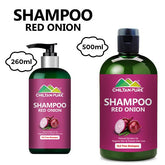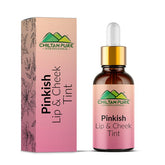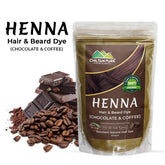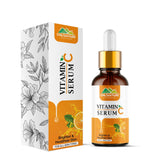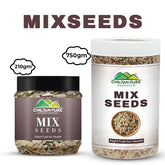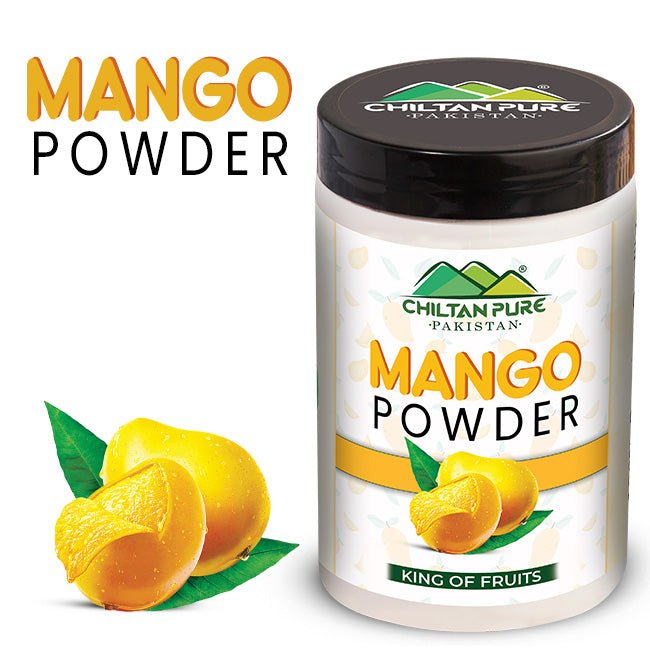DOWNLOAD our App & Get Amazing Discount
Download Now
Popular Products
- Rs. 999
Rs. 1,110- Rs. 999
- Unit price
- / per
- Rs. 999
Rs. 1,110- Rs. 999
- Unit price
- / per
- Rs. 1,099
Rs. 1,220- Rs. 1,099
- Unit price
- / per
- From Rs. 890
Rs. 1,600- From Rs. 890
- Unit price
- / per
- Rs. 599
Rs. 666- Rs. 599
- Unit price
- / per
- Rs. 799
Rs. 890- Rs. 799
- Unit price
- / per
- Rs. 1,099
Rs. 1,220- Rs. 1,099
- Unit price
- / per
- Rs. 4,599
Rs. 5,090- Rs. 4,599
- Unit price
- / per
- From Rs. 699
Rs. 1,350- From Rs. 699
- Unit price
- / per

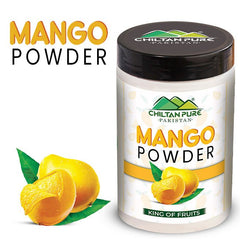
Mango Powder – King of fruits, high in antioxidants, boosts immunity, supports hear health, supports eye health – 100% pure organic
Prime Fast Delivery
|
- Rs. 500
Rs. 999- Rs. 500
- Unit price
- / per
Need More Discount ~ Chat with Sales Person! BARGAIN NOW
ChiltanPure Mango Powder
Mango powder is not only delicious but also boosts an impressive nutritional profile. In fact, studies link mango and its nutrients to health benefits, such as improved immunity, digestive health and eyesight, as well as a lower risk of certain cancers.
High in Antioxidants
Mango is packed with polyphenols — plant compounds that function as antioxidants.
It has over a dozen different types, including magnifier, catechins, anthocyanins, quercetin, kaempferol, rhamnetin, benzoic acid and many others.
Antioxidants are important as they protect your cells against free radical damage. Free radicals are highly reactive compounds that can bind to and damage your cells.
Research has linked free radical damage to signs of aging and chronic diseases.
Amongst the polyphenols, Mangifera has gained the most interest and is sometimes called a “super antioxidant” since it’s especially powerful (5Trusted Source).
Test-tube and animal studies have found that mangiferin may counter free radical damage linked to cancers, diabetes and other illnesses.
Boosts Immunity
Mango is a good source of immune-boosting nutrients. One cup (165 grams) of mango provides 10% of your daily vitamin A needs. Vitamin A is essential for a healthy immune system, as it helps fight infections. Meanwhile, not getting enough vitamin A is linked to a greater infection risk. On top of this, the same amount of mango provides nearly three-quarters of your daily vitamin C needs. This vitamin can help your body produce more disease-fighting white blood cells, help these cells work more effectively and improve your skin’s defenses. Mango also contains folate, vitamin K, vitamin E and several B vitamins, which aid immunity as well.Supports Heart Health
Mango contains nutrients that support a healthy heart. Mango also contains a unique antioxidant called mangiferin (5Trusted Source). Animal studies have found that mangiferin may protect heart cells against inflammation, oxidative stress and apoptosis (controlled cell death. In addition, it may lower blood cholesterol, triglycerides and free fatty acid levels (21Trusted Source). While these findings are promising, research on mangiferin and heart health in humans is currently lacking. Therefore, more studies are needed before it can be recommended as a treatment.Improve Digestive Health
Mango has several qualities that make it excellent for digestive health. For one, it contains a group of digestive enzymes called amylases. Digestive enzymes break down large food molecules so that they can be easily absorbed. Amylases break down complex carbs into sugars, such as glucose and maltose. These enzymes are more active in ripe mangoes, which is why they’re sweeter than unripe ones. Moreover, since mango contains plenty of water and dietary fiber, it may help solve digestive problems like constipation and diarrhea. One four-week study in adults with chronic constipation found that eating mango daily was more effective at relieving symptoms of the condition than a supplement containing a similar amount of soluble fiber.This indicates that mango has other components aside from dietary fiber that aid digestive health.Supports eye health
Mango is full of nutrients that help support healthy eyes. Two key nutrients are the antioxidants lutein and Zeaxanthin. These accumulate in the retina of the eye — the part that converts light into brain signals so your brain can interpret what you’re seeing — especially at its core, the macula. Inside the retina, lutein and Zeaxanthin act as a natural sunblock, absorbing excess light. In addition, they appear to protect your eyes from harmful blue light. Mangoes are also a good source of vitamin A, which supports eye health. A lack of dietary vitamin A has been linked to dry eyes and nighttime blindness. More severe deficiencies can cause more serious issues, such as corneal scarring.Improves hair and skin health
Mango is high in vitamin C, which promotes healthy hair and skin. This vitamin is essential for making collagen a protein that gives structure to your skin and hair. Collagen gives your skin its bounce and combats sagging and wrinkles. Additionally, mango is a good source of vitamin A, which encourages hair growth and the production of sebum a liquid that helps moisturize your scalp to keep your hair healthy. What’s more, vitamin A and other retinoid migrate to your skin and protect it from the sun. Aside from vitamins A and C, mango is high in polyphenols, which function as antioxidants. These antioxidants help protect hair follicles against damage from oxidative stress.|
Add 1-3 teaspoons of Mango Powder to water, coconut water, juice, smoothies, soups, stews, sauces, and yoghurt daily
|
|
Add 1-3 teaspoons of Mango Powder to your favorite smoothie recipe to create a nourishing, antioxidant-rich smoothie. As there are no binders or excipients added, contents may settle
|
Related Products
- Rs. 500
Rs. 999- Rs. 500
- Unit price
- / per
- Rs. 500
Rs. 999- Rs. 500
- Unit price
- / per
- Rs. 500
Rs. 999- Rs. 500
- Unit price
- / per
- Rs. 500
Rs. 999- Rs. 500
- Unit price
- / per
- Rs. 500
Rs. 999- Rs. 500
- Unit price
- / per
- Rs. 500
Rs. 999- Rs. 500
- Unit price
- / per
- Rs. 500
Rs. 999- Rs. 500
- Unit price
- / per
- Rs. 500
Rs. 999- Rs. 500
- Unit price
- / per
- Rs. 500
Rs. 999- Rs. 500
- Unit price
- / per
- Rs. 500
Rs. 999- Rs. 500
- Unit price
- / per
Recently Viewed Products
- Rs. 500
Rs. 999- Rs. 500
- Unit price
- / per
- Rs. 500
Rs. 999- Rs. 500
- Unit price
- / per
- Rs. 500
Rs. 999- Rs. 500
- Unit price
- / per
- Rs. 500
Rs. 999- Rs. 500
- Unit price
- / per
- Rs. 500
Rs. 999- Rs. 500
- Unit price
- / per
- Rs. 500
Rs. 999- Rs. 500
- Unit price
- / per
- Rs. 500
Rs. 999- Rs. 500
- Unit price
- / per
- Rs. 500
Rs. 999- Rs. 500
- Unit price
- / per
- Rs. 500
Rs. 999- Rs. 500
- Unit price
- / per
- Rs. 500
Rs. 999- Rs. 500
- Unit price
- / per
- Choosing a selection results in a full page refresh.
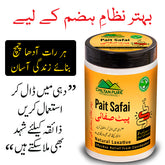

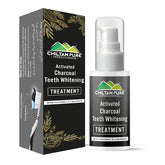

![Red Onion Oil 🧅 Reduces Hair Fall & Accelerates Hair Regrowth [پیاز کا تیل].. Trending.... 🔥 - ChiltanPure](http://chiltanpure.com/cdn/shop/products/red-onion-oil-reduces-hair-fall-amp-accelerates-hair-regrowth-piaz-ka-til-trending-394813_165x.jpg?v=1707464619)
![Red Onion Oil 🧅 Reduces Hair Fall & Accelerates Hair Regrowth [پیاز کا تیل].. Trending.... 🔥 - ChiltanPure](http://chiltanpure.com/cdn/shop/products/red-onion-oil-reduces-hair-fall-amp-accelerates-hair-regrowth-piaz-ka-til-trending-329640_165x.jpg?v=1708127491)
